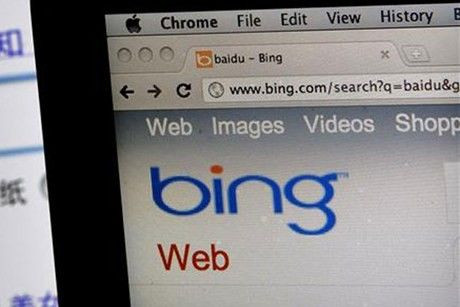Bing vs. Google -- Microsoft’s Pepsi Challenge Backfires

Remember the Pepsi Challenge? Apparently, Microsoft (Nasdaq: MSFT) does.
The software company on Thursday evoked that famous marketing campaign when it launched the "Bing It On" challenge, an online blind comparison test in which its Bing search engine goes head to head with Google (Nasdaq: GOOG). At the website bingiton.com, users type various search terms into a field, after which they are shown two columns of blind results -- one column from Bing, the other from Google. The test lasts for five rounds of searches, after which users are asked to pick which search results they prefer, with the score displayed after completion. Unfortunately for Bing, in two separate trials conducted by the International Business Times, Google came out ahead in both cases, winning 3:2 in the first test and 4:1 in the second.
With ambiguous search queries, Google was the clear winner. For instance, in the Google column, a search for "God Save the Queen" revealed fairly even results for the British national anthem and the Sex Pistols song, with the former's Wikipedia page topping the list. The Bing side was slightly more skewed toward the anthem, and the overall results appeared to be distributed in a more haphazard manner.
Google also came out on top in search terms for current events. A search for "DNC" produced virtually all results for the Democratic National Convention, with up-to-the-minute news stories marked as such. Bing's results included a jarringly large photo of President Obama, along with some oddly random results such as the Wikipedia page for "dilation and curettage," a surgical procedure.
However, Bing did have an edge in some of the more obscure searches. A search for random IBTimes staffers revealed more relevant results and photos in the Bing column.
Though touted as a blind comparison, "Bing It On" will not produce completely blind results for anyone familiar with Google's layout (read: everyone). Picking up on some of the subtle differences between the Google and Bing columns will not be that difficult for savvier users. For instance, sub-sections for major websites like NYTimes.com appear much bigger and more detailed in Google's results. Even if users are not willfully aware that they are choosing Google, they may be subconsciously drawn to the layout simply based on its familiarity.
According to a July report from comScore, 66.8 percent of all search queries come from Google, although Bing is slowly gaining ground. Now No. 2 in the marketplace, Bing accounted for 15.7 percent of all search queries in July 2012, up from 14.1 percent in June 2011. Bing was officially launched by Microsoft in June 2009 and has since formed partnerships with some of the Web's biggest players, most notably Facebook (Nasdaq: FB), whose internal Web-search results are powered by Bing.
According to Microsoft, the company launched the "Bing It On" challenge after it commissioned its own blind comparisons tests in which users were found to prefer the Bing search engine 2:1 over Google. That study, conducted by the San Diego-based firm Answers Research, used a representative online sample of nearly 1,000 people, according to Microsoft. The participants were chosen at random and were not aware of Microsoft's involvement.
As a marketing strategy, the Pepsi Challenge proved extremely successful for PepsiCo (NYSE: PEP). First launched in 1975, the campaign helped the soft drink earn recognition points over its larger rival, Coca-Cola (NYSE: KO). The campaign was so effective that Coca-Cola launched a counter campaign as damage control, running commercials that showed consumers picking Coke over Pepsi in the challenge.
Microsoft execs should not hold their breath for a similar reaction from Google. The search giant is not known for legitimizing its rivals in public scuffles, and if today's test results are any indication, "Bing It On" may simply tell users what they already know.
© Copyright IBTimes 2024. All rights reserved.






















